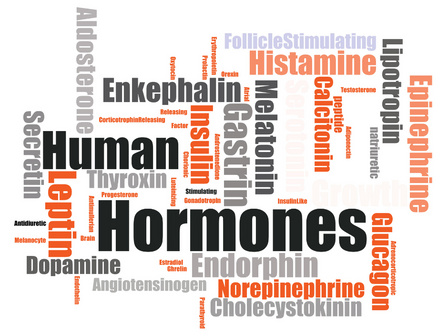Have you ever wondered why some people react vigilantly/instantaneously to one advert and not to others? What if we told you its hormones that make them differ.
Well, we have collected a few advertising hormone samples and studied them to learn more about them!
Continue reading!
There are a handful of hormones that we will be talking about in this article: cortisol, testosterone, oxytocin, and vasopressin. Each of these hormones has a specific function on their own but work together to influence our decisions in many different ways. The hormones are not only influenced by our environment but also affect the decisions we make.
If the above intro surprises or intrigues you, then be sure that your oxytocin hormone is kicked in, and you will finish the entire article swiftly 🙂
1. Cortisol
Cortisol is one of the most commonly known stress hormones in our bodies. Cortisol helps to regulate blood pressure and heart rate while also controlling immune system responses. It also helps hold a variety of body functions from metabolism to digestion to blood pressure. Cortisol is released into our bloodstream when the body is under stress or perceived as a threat to survival.
When it comes to consumer decisions, cortisol can have different effects. In some cases, cortisol can increase impulsiveness and lead people to make decisions that they may not typically make. For instance, someone may be more likely to purchase a product if they feel stressed or are in a hurry. In other cases, cortisol can lead people to make better decisions, especially when it comes to money. Cortisol can have a positive effect on decision-making through moderation. This means that while stress may trigger someone to buy something impulsively or allow themselves to be taken advantage of in some other way, their cortisol levels are also telling them not to do that. For example, you might be more inclined to purchase an expensive item on a whim if you’re stressed and in a hurry, but once stress levels return to normal. Cortisol drops back down, and you may regret that purchase.
Words like “Hurry,” “Are you tired of being body shamed?” might induce a cortisol rush, and people end up purchasing.
Trade crypto, forex and stocks via Xivora Lunex AI Xivora Lunex official website
One good advert will be HealthifyMe.
People who have put on weight during lockdown can easily relate and install the app on a whim!
Before/After elements, Coupon code for purchasing plans and more all put together makes this a wonderful ad.
2. Oxytocin
Oxytocin is often referred to as the “love hormone” because it’s released during hugging or touching. It also plays a role in social interactions such as between mothers and their children or romantic partners. Oxytocin’s main role in the body is to reduce stress and anxiety levels while also promoting bonding behaviors.
When it comes to consumer decisions, oxytocin can have a positive effect on decision-making by making us feel more at ease and lowering some of the perceived risk associated with purchasing a product. For example, when a person feels more connected to the brand they are purchasing from or if someone has already purchased similar products in the past, they are less likely to see that purchase as risky. They are also more likely to make decisions based on their emotions rather than logic because oxytocin is known for leading people to seek out dopamine, which is the chemical that’s released when we feel pleasure. Therefore, if someone feels good about a brand or product, they are more likely to buy it because of their positive feelings toward it rather than making decisions based on more logical factors.
On the other hand, oxytocin can have an effect of encouraging people to make impulsive purchases. With oxytocin, people may feel a sense of urgency to buy something quickly because they want the product to be theirs before it runs out or because their peers are making purchases. Therefore, when someone is feeling that pressure from others or from their internal desire for the product, they might make a purchase impulsively due to positive feelings toward the product.
Oxytocin ad in action (Dettol commercial):
An ad every mother of infants can relate easily. So the next time the mom sees Dettol in a retail shelve. Her hands pick dettol and put it in the shopping trolley.
3. Testosterone
Testosterone is known as the male hormone, but it plays a role in women’s bodies. Testosterone affects men and women differently because of the differences in our reproductive systems. We often think of physical characteristics such as muscle mass and body hair when we think of testosterone. Still, testosterone also plays a role in risk-taking behaviors. For example, men are more likely to take risks than women, but testosterone levels mediate this behavior.
When it comes to consumer decisions, testosterone can affect people depending on their gender and other factors. Men are thought to be more competitive in nature while also quicker to make decisions involving risk. However, women can also take risks and make quick decisions when associating positive feelings toward a product or brand. Testosterone can sometimes lead to impulsive purchases, especially for risk-takers and dominant personalities.
The ad that has put testosterone for a good cause (Muscleblaze)
On the other hand, testosterone can have a moderating effect on consumer decisions as well. Since risky decision-making is associated with testosterone levels, it’s common to see this chemical also affect whether someone is willing to buy something or not. Testosterone levels can influence people’s willingness to accept risk in the form of higher prices or longer wait times for their purchase. For example, a risk-taker will be more likely to pay a higher price for something that has less certainty in its outcome. Men might also accept a longer wait time for their purchase because they may see the wait as part of the thrill of purchasing something.
Ads for which people pay that has less certainty in its outcome…
Are you sure of getting six packs in 14 days?
Meh! We dont think so. Well if we are falling for it then that’s the latter case of testosterone.
4. Vasopressin (AVP)
Vasopressin (AVP) is a neuropeptide that plays a role in social behavior, including aggression, dominance, and pair bonding. Recent studies have also shown that AVP can modulate decision-making in humans. AVP has been found to increase the willingness to take risks to obtain potential rewards.
These findings have important implications for marketing and consumer decision-making. For example, AVP may lead consumers to take more risks when choosing which products to buy or where to invest their money. This could lead to increased spending and investment risk-taking behavior by consumers.
The effect of AVP on decision-making may also vary depending on whether those making choices are those who choose to use a product or the target consumers. For example,
Assume you were asked to choose between three treatments for an ailment.
Choice 1
The first treatment is you would be diagnosed with the ailment but not treated.
Choice 2
The second choice is a treatment by a pill that has a known success rate of 80% and side effects, which made the chance of recovery 30%.
Choice 3
The third choice is an “untested treatment with unknown effectiveness and side effects.”
What will you choose?
Well, most of us go with Choice 3. Because it seems safe. Its Vasopressin
A simple way to relate will be
AVP may, however, lead to riskier choices when it comes to long-term investments or making purchasing decisions about prospective or hypothetical products rather than actual, immediate ones.
The effect of vasopressin on risk-taking behavior has been demonstrated in a number of studies involving both humans and other animals. In one study, intravenous injections of AVP were found to increase the willingness to take risks in humans as measured by a gambling task.
The task involves two decks of cards; one deck results in a net loss while the other deck results in a net gain. The chances are 50/50, and hence many users are addicted to Gambling sports.
They don’t know that its Vasopressin makes them lose money.
In summary, different hormones can have very other effects on consumer decisions. For example, cortisol makes people more risk-averse, testosterone makes people more overconfident, and oxytocin makes people behave more ethically. These differences may arise because each hormone has distinct effects on specific brain regions like the amygdala (for cortisol) or the nucleus accumbens (for testosterone). As marketers, it is our responsibility to use the digital marketing playground more wisely so that it doesn’t affect the consumers.
Explore our patient-centric healthcare marketing solutions, which can help you succeed in this rapidly changing world.


